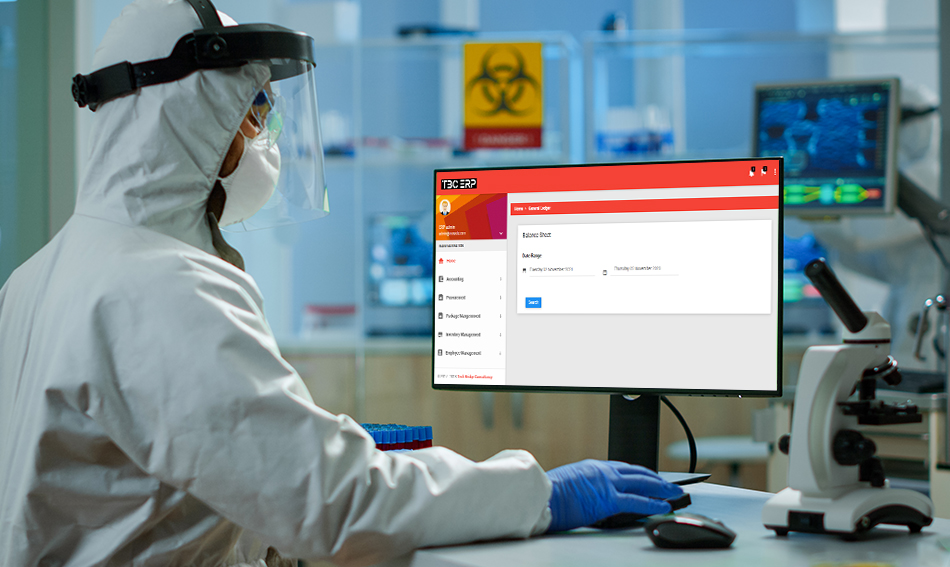
Harnessing ERP Software Pharmaceutical Industry
The pharmaceutical industry operates in an intensely complex environment with stringent regulatory compliance requirements, intricate supply chains, and relentless pressure to innovate and get products to market rapidly. Effectively managing operations and processes is critical. Enterprise resource planning (ERP) software has emerged as an essential tool for pharma companies, enabling improved efficiency, visibility, and analytics across the organization. As the industry evolves, the ERP software pharmaceutical industry has become even more important.
Meeting Compliance Requirements and Industry Mandates:
Pharmaceutical companies must adhere to a litany of compliance rules and regulations governing research, clinical trials, manufacturing, distribution, and sales & marketing. Non-compliance threatens patient safety and can lead to severe penalties. ERP software helps embed compliance requirements into business processes and enforce adherence. It centralizes data, documents, and SOPs ensuring consistency across locations. ERP also enables automation of workflows, alerts for process deviations, strong audit trails, and reporting for internal & external inspection readiness. Critical initiatives like serialization mandates for supply chain traceability have also been enabled by flexible ERP platforms.
Enhancing Supply Chain and Manufacturing Efficiencies:
Pharmaceutical supply chains are intricate, spanning global locations for sourcing ingredients to manufacturing, packaging, and distribution before reaching healthcare providers and patients. Efficient supply chain management is key, and ERP software pharmaceutical industry centralizes procurement, inventory, manufacturing scheduling, quality control, warehousing, and logistics on a common integrated platform. This connectivity and transparency of data facilitates smooth material flows and proactively addresses bottlenecks. ERP also allows analysis enabling improved forecasting and optimization. For pharma manufacturing which requires meeting stringent quality standards across batches of drug products, ERP brings automation and enforces consistent SOPs and quality checks while tracing batches.
Accelerating Drug Research and Development:
Developing new drugs is lengthy, expensive, and risky for pharma companies. ERP software pharmaceutical industry supports key research processes, managing clinical trials involving vast amounts of patient data efficiently while maintaining confidentiality and reporting standards needed for regulatory approvals. For research functions like pharmacovigilance involving detection, assessment, monitoring, and prevention of adverse effects with marketed drugs, ERP enables collaboration and data connectivity across global locations. For pharmaceutical labs, workflow automation and integrated instrumentation systems facilitated by ERP lead to gains in productivity.
Proactively Addressing Pharma Industry Shifts:
The pharmaceutical industry is undergoing major shifts driven by expiring patents, pricing pressures, and competition from generics. Maintaining pipelines, exploring new markets, mergers & acquisitions, diversification, etc. are strategies being employed by companies. ERP helps proactively manage such changes through its real-time data availability and analytics revealing actionable insights. ERP also delivers the flexibility to reconfigure processes and reporting structures needed to support new products, business models service offerings emerging out of such shifts.
Conclusion:
ERP has evolved into an invaluable tool helping pharmaceutical companies tackle multifaceted challenges stemming from regulatory compliance needs, complex global supply chains, and stringent drug development. It also contributes to manufacturing & distribution practices and proactively adapting to industry shifts. As the pharma landscape grows even more intricate, the CherryBerry ERP software pharmaceutical industry with its integrated platform and analytics will continue playing a pivotal role. Companies need to periodically re-evaluate their existing ERP landscape or explore new systems to harness these benefits fully given the rapid pace of change. With solutions emerging from SAP, Oracle, Microsoft, and other leaders, the technology is ready to empower transformation.
